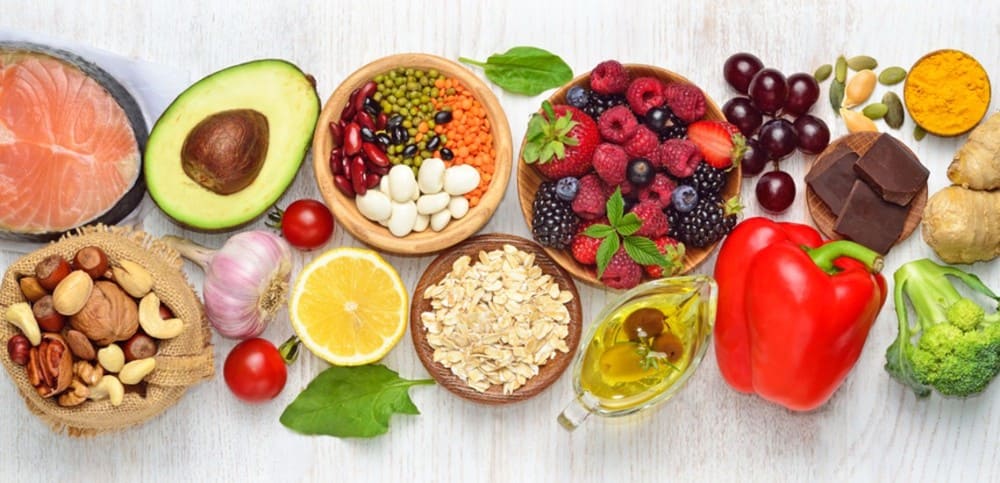The Latest Nutrition Trends We Love / Hate
In the world of nutrition and diet, every now and then something comes along that takes the health industry by storm. Whilst 2020 has been one hell of a year, it has been no exception to a wave of new fangled health food trends, many of which you can now pick up from the shelves of your local supermarket. As well as new health trends, another season also brings another menu of celebrity endorsed, and often rather insane diet regimes, to get us in shape for Christmas. With Instagram stars and A-List celebrities preaching about their latest diet success, there are certainly plenty of new dietary fads to choose from.
As we’ve all been a little preoccupied this year, we take a look back at some of the nutrition trends that may have passed you by.
The Power of Plants
It’s no secret that the number of Vegans in the UK is rising year on year, and with this, 2020 has seen a record number of plant based alternatives hitting the supermarket shelves. With a better range of convenient options available, more and more of us are adopting a ‘flexitarian’ diet, reducing our meat consumption and opting for more veggies and plant-based meat alternatives. Beyond ethical considerations, there are a tonne of health benefits related to veganism. Less trans fats and processed foods make for a healthier gut, whilst an increase in fibre intake and prebiotic foods does our bit for the world and wildlife around us.
Not only has veganism taken the health world by storm, the fast food industry has also wanted their slice of the vegan pie this year, with the likes of Nando’s and KFC tapping into the ever growing ‘vegan junk food’ market.
Intuitive Eating
A new diet comes along every year making grand claims to be the diet to end all diets. This year everyones talking about intuitive eating. Essentially, it’s the opposite of a traditional diet. It doesn’t impose guidelines about what to avoid and what or when to eat. It simply promotes a healthy attitude toward food and body image and the idea that you should eat when you’re hungry and stop when you’re full. Sounds pretty simple right?
For many, traditional diet culture has taken this ability away from us, so as crazy as it may seem, this simple innate instinct may need to be relearned. Intuitive eating teaches you to distinguish between physical and emotional hunger, to end the cycle of guilt attached to food and begin to see food as a means to nourish and refuel the body. Whilst it may not offer a quick fix for weight loss, it’s great to see a move away from restrictive diets that are unsustainable in the long run. For more insight on being in tune with your hunger level, check out ‘How Hungry Are You?’
Gut Friendly Foods
The popularity of prebiotics, probiotics, and other gut-healthy options continued to rise throughout 2020, as health conscious consumers gave some more thought to their digestive wellness. Fermented products such as kombucha and kefir have started to hit the mainstream supermarket shelves, claiming to improve digestion by helping to restore balance in the gut. Kefir is a cultured, fermented drink made by adding cultures of yeast and lactic acid bacteria to milk. Sales of fermented jarred products such as sauerkraut and kimchi have also seen a rise in sales. While there’s definitely a buzz around such products, studies show that ensuring good intestinal health can support the immune system and anti-inflammatory responses so this could well be a trend worth getting behind.
The Rise of Oat Milk
The demand for dairy alternatives continues to skyrocket as more and more Brits reduce their dairy intake or cut it out of their diets completely. While milk alternatives such as soya and almond milk have shared the limelight for some years now, 2020 has been all about oat milk! Reasons for it’s huge popularity include it’s similar consistency to cow’s milk, it’s fairly neutral flavour and the fact it’s widely considered to be the most sustainable and environmentally-friendly of all the mainstream plant-based milks. The buzz around oat milk has also transcended the barista world as unlike other alt-milks, it doesn’t separate when added to coffee and is great for creating some funky latte art. Why not give it a go in your next Starbucks order and see what all the fuss is about.
Non-Alcoholic Beverages
This year many of us opted to reduce our alcohol intake, due to the associated health benefits this brings. This has led to companies racing to bring out non-alcoholic beers, spirits and cocktails in an attempt to satisfy the nation's thirst for hangover-free drinking. For the 1 in 5 teetotal British adults, this is great news, with the likes of Seedlip non-alcoholic gin, and Brew Dog’s range of alcohol free IPA’s providing great alternatives when the moment calls for a tipple! This trend is expected to continue into 2021, making dry January a little easier for the over 4 million of us pledging to take part. So, we’ll be frequenting the numerous ‘dry bars’ cropping up across the country, to enjoy booze-free spirits, saintly alcohol-free wines and sodas crafted from elderflower, nettle, ginseng and rhubarb. (Try a mocktail in the Village Pub!)
Hemp & CBD Food Products
CBD, is a legal chemical found in cannabis and can be sold in the UK, not to be confused with the psychoactive chemical, called THC. CBD is believed to hold a whole host of medicinal benefits, such as relaxation and relief of pain, nausea and anxiety. Studies that look into its effects are however inconclusive. This year we’re starting to see hemp and CBD based food and drink products popping up in cafes and restaurants across the country - but is this a trend that’s here to stay?
While CBD may be viewed by many as a trendy buzz word, the hemp plant as a whole offers many benefits that the US health market is already starting to get behind. While the UK tends to follow in the footsteps of America when it comes to health trends, it’s yet to be seen if this one will catch on.
Fad Diets
Are you guilty of partaking in fad diets just to lose a little fat just before Christmas? Just how much damage can fad diets be doing to your body? Step away from the syrup…
The Paleo Diet
What is it? Old school eating. Stone age old schools. You eat what our distant ancestors did. Animals (including bone, cartilage and organs), eggs, fruits, raw nuts and seeds.
What’s the damage? Research suggests that following the paleo diet could actually lead to rapid weight gain and insulin resistance. It also cuts out fresh legumes and whole grains, and there's been no evidence of these being particularly bad for you. So, fill up.
The Atkins Diet
What is it? The celebrity favourite of the early noughties. Cut the carbs and the sugar, including fruit juices and grains.
What’s the damage? Atkins became very well known for its connection with bad breath. A lack of carbs can also lead to tiredness, dizziness, constipation and insomnia.
The Cookie Diet
What is it? Cookies. Low-calorie ones. Made popular by Dr Sanford Siegal, on this diet you can stuff your face with special low calories cookies, in place of your breakfast, lunch, and any snacks in between (have a normal dinner though, you know, for variety!)
What’s the damage? Um... where’s the nutrition? You won’t be getting your daily vitamins and nutrients from a low cal biscuit. Sure, short term, you’ll drop a few pounds. Long term, your body will suffer.
Mono Meal Diet
What is it? One food group. Over and over and over and over and over….
What’s the damage? Eating just one type of food for every single meal won’t only cause you some serious boredom, but will deprive the body of nutrients, which can lead to sleep problems, kidney issues, bad skin, excessive tiredness and bowel trouble.
The Master Cleanse
What is it? Liquid. Everything. For breakfast, lunch and dinner, including a lovely herbal laxative tea to get everything moving. The Master Cleanse promises to help you overcome the ‘psychological need to eat’.
What’s the damage? Laxatives cause dehydration, irritable bottoms, diarrhoea and embarrassing gas. Some testers of this diet also reported acne, lack of concentration, poor energy levels and dizziness.
The Tapeworm Diet
What is it? The tapeworm concept is nothing new. In fact, it’s been around forever. It just appears to have become a popular choice over the years thanks to our quest for quick fixes! The diet involves deliberately ingesting the tapeworm parasite, so that it can eat the food you’ve consumed.
What’s the damage? Despite the fact you have a living parasite sat in your body, enjoying your Sunday Village Carvery? It’s also possible for the worm to wriggle its way into other parts of the body through your blood, including your eye, liver or even your brain. Shudder.
Have we put you off these fad diets yet?
Immune System Boosting Eats
There's never been a better time to fill ourselves with good, health-boosting foods. Not only does working from home and being more sedentary put us at risk of weight gain, but missing out on essential nutrients won't help us to ward off the effects of COVID-19. Take a look at our top immune system boosting foods here.
What are you munching on? Whether it’s a daily Kombucha or the transition to oat milk, let us know what health trends you’ve jumped on and share your snaps with us on Instagram!


